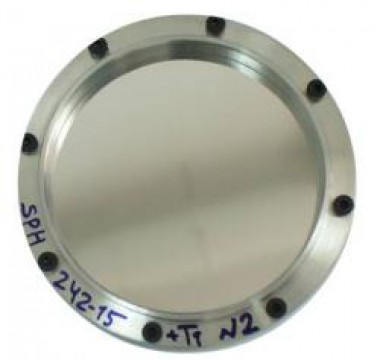
Polarization converters represent a thin-film transmissive structure providing high-efficiency transformation of incident radiation polarization from linear to circular (and vice versa). Such converters while being significantly thinner than the operating wavelength serve as an advantageous alternative to bulky quarter-wave plates on the basis of disperse materials. Two such converters installed one after another allow to rotate the polarization plane of the linearly polarized radiation at an arbitrary angle.
All optical elements are produced on the basis of multi-layered frequency-selective surfaces - thin planar metal-coated microstructures with cells of special geometric shape, the topology of which defines the frequency properties of the element. Frequency-selective surfaces are resonant electrodynamic structures operated in the mode, in which the resonance frequency is below the point of excitation of high-order diffraction harmonics. This approach allows to create optical elements with unique properties unachievable or hard-hitting within the frames of traditional optics.
Working frequency | 0.05 to 1 THz |
Relative bandwidth | 5 % |
Transmission at the central frequency | 80 % |
Efficiensy of linear to circular polarisation conversion | 100 % |
Transmission at the working frequency | 50 % |
Beam apertute diameter | 25 to 70 mm |
